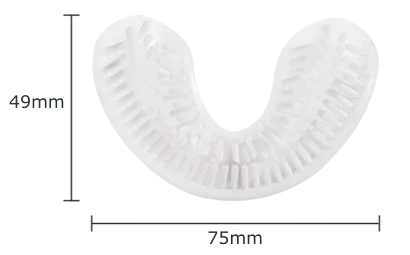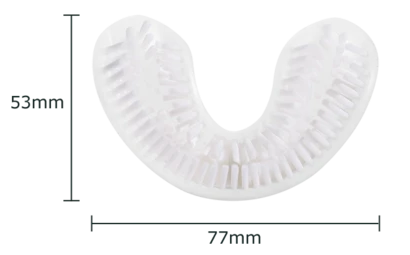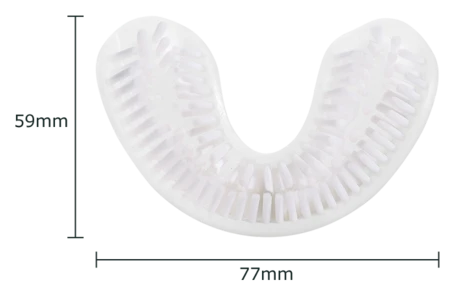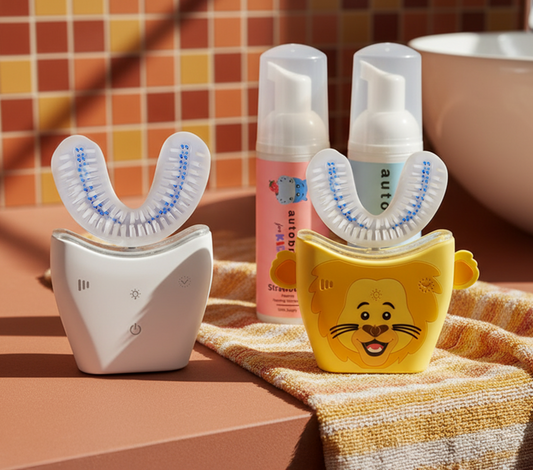
Pros And Cons Of Activated Charcoal
Amongst the flurry of trends filling up your social media feed, you may have seen plenty of content surrounding the various uses of activated charcoal.
Charcoal has been taking the cosmetic industry by storm - advertised in face masks, creams, food, and most notably as a teeth whitening solution. Plenty of people swear by charcoal as a way to brighten their smile, but how effective is it against other mainstream teeth whitening products?
In this article we’ll cover the pros and cons of using activated charcoal in your oral care regimen and we’ll show you just how effective it may, or may not, be for you.
What is activated charcoal?

Before you go digging around in your outdoor grill, let’s discuss what commercialized activated charcoal is made from. Activated charcoal is a fine powder typically made from wood, peat, and coconut shells. It’s finely ground and oxidized under extreme heat. It’s used in many different health and wellness products, usually as a way to absorb toxins, but many toothpastes claim it has use as a teeth whitening solution.
Because of the processes involved with creating commercial activated charcoal, most toxins and yucky contaminants are removed under high temperature, so it's not recommended to use your own.
Is activated charcoal safe for use?
Since activated charcoal is a relatively new trend, the research behind its use and safety has a ways to go. To put it simply, there’s a lot of unknowns surrounding charcoal and more research is needed before we can provide definitive answers; however, here’s what we know about activated charcoal now:
- It’s abrasive: This means that activated charcoal may not be the best idea for everyday use. Abrasive toothpastes can wear down that important enamel on your teeth, leading to more yellow looking and sensitive teeth.
- It doesn’t contain fluoride: At least, most activated charcoal toothpaste brands don’t. Fluoride is important for keeping your tooth enamel strong and healthy. However, growing concerns surrounding the use of fluoride have pushed people toward finding alternative toothpastes. Regardless of what you choose to use, it’s important to keep your enamel healthy.
- It can cause staining on certain teeth: Activated charcoal can fill the cracks and crevices on older teeth, causing stains.
- There’s a lot of unknown surrounding charcoal: While research is underway, there’s still plenty of unknowns. Because of this, there are chances of adverse effects being found in the future.
What about teeth whitening?

Charcoal’s abrasive properties aren’t all bad. It’s fairly effective in removing plaque buildup and stains on the surface of your teeth. It also works as an absorbent, meaning it can help you make your teeth a few shades lighter.
There’s no evidence proving charcoal’s ability to remove stains below the enamel, which other tooth whitening toothpastes offer. In order to be an effective tooth whitener, the toothpaste needs to have an effect on both surface stains and those below the enamel.
Still with us? Let’s break things down into a pros and cons list:
The pros of activated charcoal
- It can help remove surface stains on your teeth.
- It can prevent staining on your teeth when used occasionally, especially after a professional cleaning.
- It may help reduce bad breath.
Toothy Tip: AutoBrush Dental Flossers have a charcoal thread, helping you keep your teeth sparkling clean and white.
The cons of activated charcoal
- The abrasiveness of activated charcoal can have adverse effects on tooth enamel with frequent use.
- Frequent, everyday use can cause sensitivity issues in your teeth.
- It does not remove stains below the enamel.
- Long term effects of activated charcoal use are not well known.
- Most charcoal based toothpastes do not contain fluoride.
- Can stain older teeth and dental restoration work, like crowns and fillings.
Other methods of teeth whitening

If you’re on the fence about using activated charcoal to whiten your teeth, don’t worry. There are plenty of other methods you can use to make those pearly whites sparkle. Many of these options can be purchased over the counter at your local pharmacy, or ordered online. Let’s break down some of the best methods of whitening your teeth:
- Whitening toothpastes
- Whitening strips
- Professional whitening, performed by a dentist
Toothy Tip: Overwhelmed by the huge amount of whitening products? The AutoBrush Whitening Kit only takes 10 minutes of your time for 10 days and will help you achieve the bright smile you’ve been looking for.
At-home teeth whitening

If you’re looking for some at-home teeth whitening solutions, there are several methods you can use that you might already have lying around your house. Be sure to consult your dentist to see which one may work best for you:
- Baking soda
- Hydrogen peroxide
- Apple cider vinegar
Still curious about how these products can help whiten your teeth? See this article on alternative toothpaste options/recipes.
Final Thoughts…
Although activated charcoal is taking social media and the press by storm, the lack of substantial research means that exercising caution is probably the best idea at the moment. While there are some proven benefits of using charcoal in your dental regimen, most of these benefits only really work if used in extreme moderation.
Consider keeping your old whitening toothpaste around, and perhaps throw in some activated charcoal every now and then to help with those surface stains. All in all, we’ll just have to wait and see until more research comes out concerning activated charcoal and its potential benefits to your dental health.













